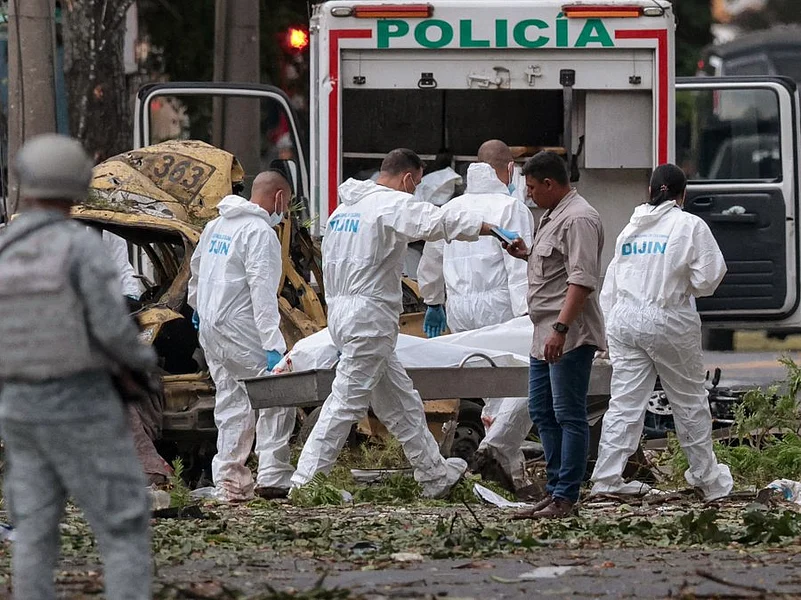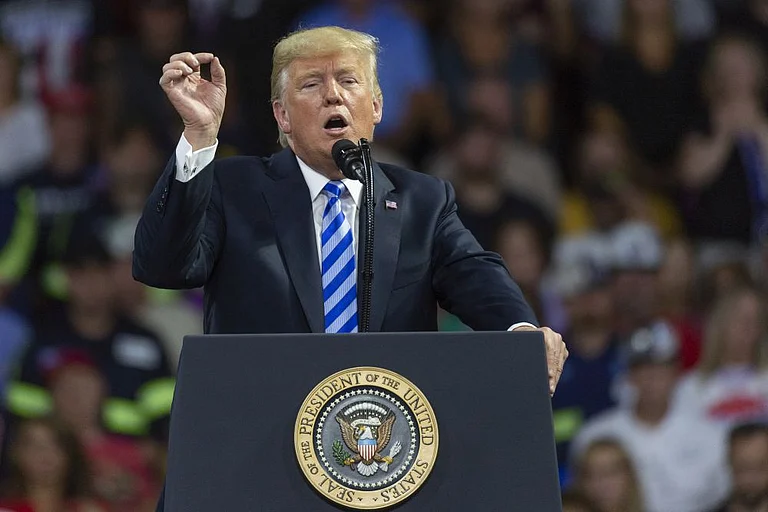
- At least 17 people died in Columbia in two separate violent incidents
- A police UH-60 Black Hawk helicopter escorting personnel for coca crop eradication was brought down by a drone
- President Gustavo Petro accused dissident factions of the Revolutionary Armed Forces of Colombia (FARC) of orchestrating the attack
Two separate violent incidents claimed the lives of at least 17 people on Thursday, including 12 police officers, authorities confirmed. A drone-attack on a police helicopter operating in Antioquia and a car bombing in Cali have heightened concerns about rising violence attributed to FARC dissidents, AP reported.
In rural Antioquia, a police UH-60 Black Hawk helicopter escorting personnel for coca crop eradication was brought down by a drone, resulting in the deaths of 12 officers and leaving three injured. The initial casualty count was eight, but authorities later confirmed additional fatalities. President Gustavo Petro accused dissident factions of the Revolutionary Armed Forces of Colombia (FARC) of orchestrating the attack.
Meanwhile, in the southwest city of Cali, a car bomb detonated near a Colombian Aerospace Force base, killing five people and injuring dozens. Reports indicate more than 40 individuals were wounded in the attack. President Petro suggested that the caravan of violence reflects retaliation by armed groups, as both the bomb and drone attacks followed cocaine seizures and military actions against illicit operations.
Broader Context and Security Challenges
The incidents underscore escalating security challenges in Colombia. FARC dissidents—groups that rejected the 2016 peace deal—and other criminal factions like the Gulf Clan remain active, especially in coca-producing regions. These groups have increasingly employed asymmetric tactics, including drone strikes and car bombings, to challenge state control.
Coca cultivation continues to surge in Colombia. According to the UN Office on Drugs and Crime, the country recorded a staggering 253,000 hectares under coca cultivation in 2023.
At least one arrest has been made in connection with these attacks as investigations proceed. Government officials are stepping up security measures to prevent further violence. Colombia is now facing one of its deadliest days in recent memory, as President Petro’s administration grapples with renewed unrest despite its peace overtures.

























